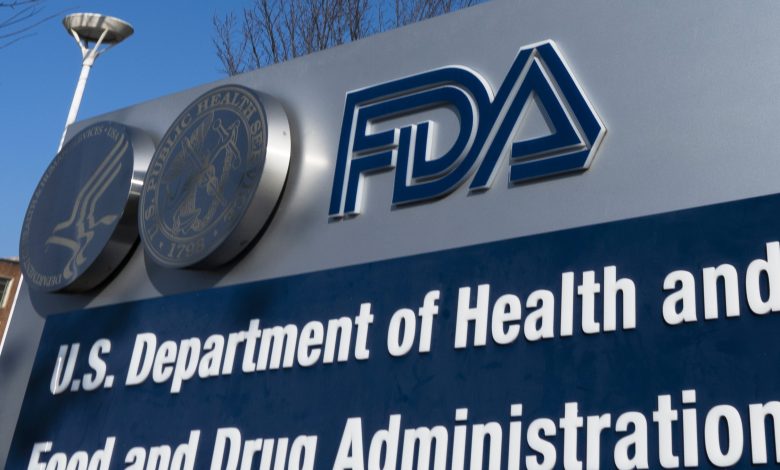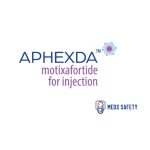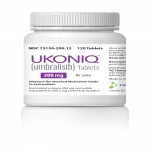FDA Grants Approval to Aphexda for Hematopoietic Stem Cell Mobilization in Multiple Myeloma Patients

TEL AVIV, Israel, September 11, 2023 /PRNewswire/ — BioLineRx Ltd. (NASDAQ/TASE: BLRX), a biopharmaceutical company dedicated to addressing specific cancers and rare diseases, announced today that the U.S. Food and Drug Administration (FDA) has granted approval for Aphexda™ (motixafortide) in conjunction with filgrastim (G-CSF) to mobilize hematopoietic stem cells into peripheral blood for collection and subsequent autologous transplantation in patients with multiple myeloma. Aphexda is administered via subcutaneous injection.
Multiple myeloma ranks as the second most common hematologic malignancy. Autologous stem cell transplantation (ASCT) represents a vital component of the standard treatment for multiple myeloma, offering prolonged survival prospects for affected individuals.1 The success of ASCT relies heavily on the effective mobilization of stem cells during treatment. According to guidelines from the American Society for Transplantation and Cellular Therapy (ASTCT), a collection target of 3-5 x 106 CD34+ cells/kg is recommended.2 Additionally, the collection of an adequate number of stem cells for two transplantations is advised.2-5 Historically, depending on various induction regimens and mobilization strategies, up to 47% of patients faced challenges in achieving the target numbers of hematopoietic stem cells necessary for ASCT following a single apheresis session.6-7
Dr. John DiPersio, MD, PhD, the primary investigator for the GENESIS trial and Professor of Medicine, Pathology, and Immunology, as well as Director of the Center for Gene and Cellular Immunotherapy at Washington University School of Medicine in St. Louis, commented, “A larger population of multiple myeloma patients is now eligible for autologous stem cell therapy; however, achieving the required collection goals can be challenging due to contemporary factors such as treating older patients and employing modern induction regimens. Today’s approval of Aphexda meets the demand for new therapies that enhance reliability in stem cell mobilization compared to filgrastim alone, with reduced apheresis sessions and filgrastim doses for individuals living with this cancer.”
The FDA’s approval of Aphexda is rooted in findings from the two-part, Phase 3 GENESIS trial, a randomized, double-blind, placebo-controlled study that assessed the safety and efficacy of Aphexda (motixafortide) in conjunction with filgrastim, in comparison to placebo plus filgrastim, for hematopoietic stem cell mobilization in multiple myeloma patients. The first part consisted of a single-center, open-label study involving 12 patients who received motixafortide plus filgrastim to establish the appropriate dosage. The second part included 122 patients who were randomized in a 2:1 ratio in a double-blind, multicenter study.8
CD34+ cell assessments were conducted by central and local laboratories, with central laboratory assessments used for efficacy results. Aphexda plus filgrastim allowed 67.5% of patients to attain the stem cell collection goal of ≥ 6 × 106 CD34+ cells/kg within two apheresis sessions, as compared to 9.5% for the placebo plus filgrastim regimen, based on central laboratory measurements.9 Furthermore, local laboratories reported that 92.5% of patients reached the stem cell collection goal within up to two apheresis sessions in the Aphexda group, in contrast to 21.4% in the placebo group.9 Local laboratory data were utilized for a sensitivity analysis. These results should be interpreted cautiously as they are descriptive and were not statistically powered or prespecified.
In the GENESIS trial, safety was evaluated in 92 multiple myeloma patients who received Aphexda at a dose of 1.25 mg/kg subcutaneously, combined with filgrastim, and 42 patients who received placebo plus filgrastim. Serious adverse reactions were observed in 5.4% of patients treated with Aphexda plus filgrastim. These reactions included vomiting, injection site reactions, hypersensitivity reactions, injection site cellulitis, hypokalemia, and hypoxia. The most common adverse reactions (incidence >20%) reported in GENESIS included injection site reactions (pain, erythema, and pruritus), pruritus, flushing, and back pain.9
Philip Serlin, Chief Executive Officer of BioLineRx Ltd., stated, “Given the robust efficacy data demonstrated in the GENESIS trial, which included patients representative of the current multiple myeloma patient population, we believe that Aphexda will play a crucial role in addressing unmet needs and introducing a new treatment paradigm for this challenging cancer. The company is committed to making this significant advancement in stem cell mobilization accessible to eligible patients, their healthcare providers, and transplant teams.”
Ella Sorani, PhD, Chief Development Officer of BioLineRx Ltd., remarked, “The FDA’s approval of Aphexda, the company’s first approved therapeutic, is an immensely exciting and pivotal moment in our history, affirming the success of our drug development initiatives. We extend our heartfelt thanks to all the patients and families who contributed to the research and development of Aphexda.”
Advanced age and exposure to induction regimens containing lenalidomide, including multi-drug combination regimens, have been linked to impaired stem cell mobilization.2-3 The GENESIS study encompassed patients who closely resembled the typical multiple myeloma population undergoing ASCT, with a median age of 63 years and approximately 70% of patients in both trial arms receiving lenalidomide-containing induction therapy.8 In this contemporary patient group, those receiving Aphexda plus filgrastim mobilized more than four times the quantity of stem cells in a single dose over a 24-hour period compared to those receiving placebo plus filgrastim.8
BioLineRx anticipates making Aphexda available later this month. For further details about Aphexda, including Important Safety Information, please visit the Aphexda website





